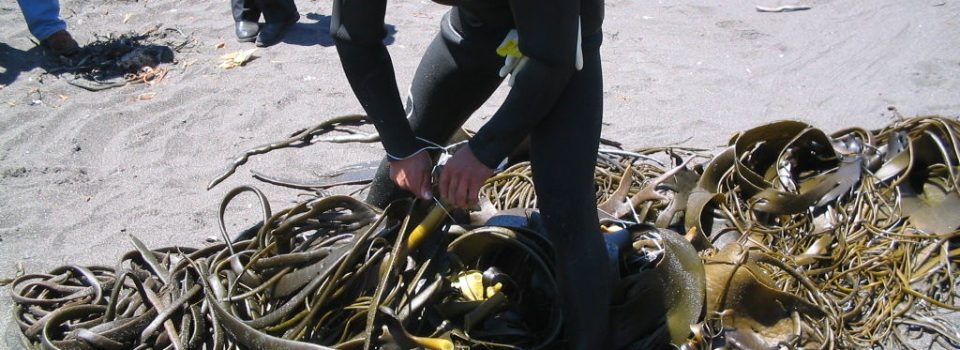IFOP is carrying out a project which seeks to put into practice marine algae crop at Caleta Río Seco in Iquique
May 19th, 2016
The development of new projects, such as algae crop, will allow the improvement of life quality from collecting fishermen; and at the same time, increase the attractiveness for investors in the sector, providing better opportunities to improve economic and social conditions in the coastal zone of region.
On May 3, at Iquique city, introduction workshop “Hiring of a consulting service for the implementation of Alga crop at B sector, belonging to the Union Caleta Rio Seco in Iquique” was carried out and it was financed by the Fondo Administración Pesquera (FAP) and developed by researchers and technicians of Repopulation and culture (Departamento de Repoblación y Cultivo), belonging to the Division of Research in Aquaculture of Instituto de Fomento Pesquero.
Francisco Carcamo, head of Repopulation and Culture Department, commented about general objective of the project: “to develop an experimental cultivation of various species of alga crop in Rio Seco area, understanding that algae crop is a productive alternative, of lower investment and complexity than crops of other species, and which can be developed by artisanal fishermen organizations in areas of his own operation.
This project is in line with legal and regulatory present, which promotes small-scale aquaculture and diversification of species in cultivation, this an alternative to traditionally aquaculture developed in our country. Proof of this are the legislative bills under discussion in Congress, which establishes a bonus system given by the State for repopulation and cultivation of algae, and another legislative bill of Instituto Nacional de Desarrollo Sustentable de la Pesca Artesanal y Acuicultura de Pesquera Escala (INDESPA) (Sustainable National Development Institute of Artisanal Fisheries and Aquaculture Scale Fisheries (INDESPA); as well as the amendment to Regulation Aquaculture in AMERBs”
Sandra Saavedra, marine biologist and project leader, explained during the workshop: “in recent years, areas of northern Chile have been favored by the boom of the algae extraction. The extraction itself is an element of support for fishing activity, which jointly with other benthic resources may constitute the basic livelihood for the functioning of management areas. However, it has been seen that the increasing demand for resources in last time, particularly marine algae, has led not only to intensify the extraction activity of this specie, but also to provoke complicated situations for sustainability in different areas. Proof of this is the implementation of the Management Plan of brown algae in the region of Tarapacá.
Because of this is that the aquaculture activity in management areas is a valid alternative for the implementation and economic sustainability of this area, being a complement of the management benthonic resources.”
